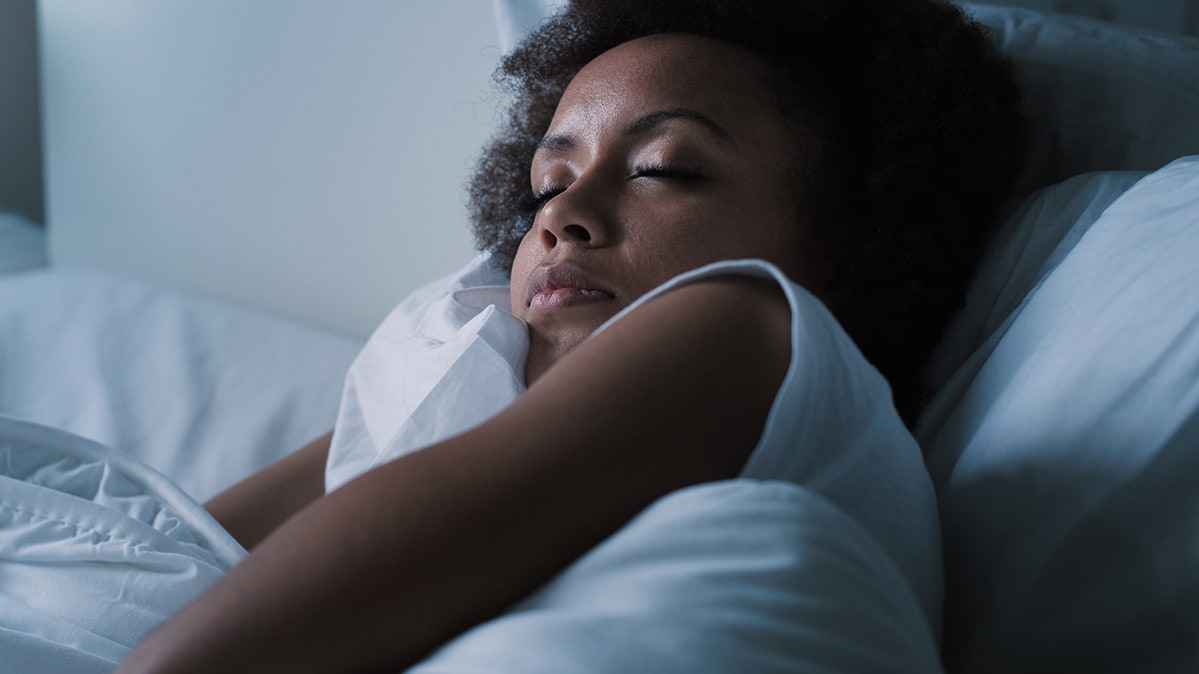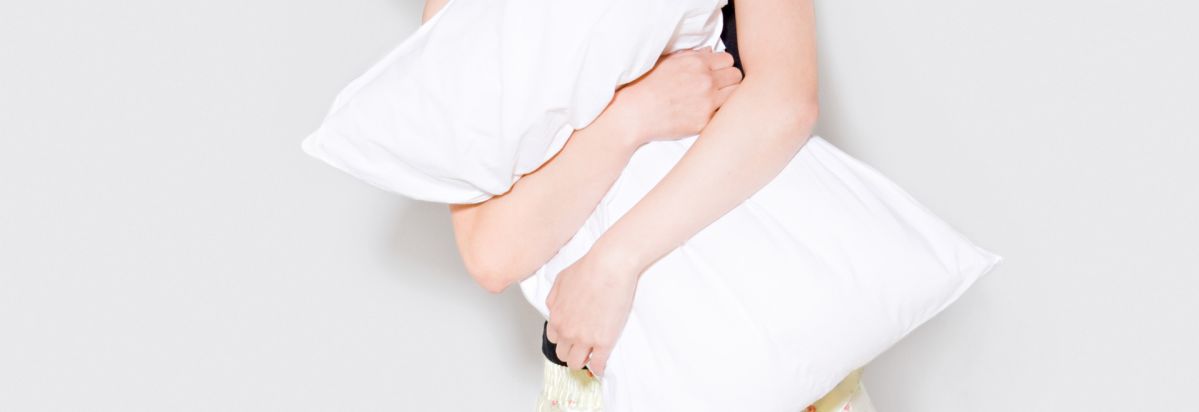How to Get Better Sleep
These expert answers to common questions will help you get a better night’s rest

Sleep is important for mind, body, and mood. But nearly half of the adults between ages 65 and 80 in a 2017 University of Michigan poll said they often have trouble nodding off.
In addition, about 31 percent of the respondents who said they have difficulty falling asleep three or more nights a week also reported regularly turning to sleep aids.
But is that a good idea? And don’t people naturally sleep fewer hours as they get older?
Here, you’ll find the answers to these and other questions—information that can assist you in your quest for better sleep.
Do You Need Less Sleep With Age?
No. Older adults require just as much sleep as younger adults—generally 7 to 9 hours, says Jessica Rundo, M.D., a staff physician at the Cleveland Clinic Sleep Disorders Center. But some aspects of aging can interfere with getting that sleep.
“As you get older, your sleep cycles change and you get less deep sleep, which can lead to more frequent awakenings,” Rundo says. Medications can also be a concern. For example, diuretics, used for high blood pressure and heart failure, can cause you to wake up frequently to go to the bathroom.
Insufficient sleep has been linked to an increased risk of falls, cognitive decline, and dementia. Chronic insomnia—difficulty falling asleep or staying asleep at least three nights a week for three months or longer—can also occur with conditions such as anxiety and depression.
What Can You Do to Get Better Sleep?
Some do-it-yourself strategies can fix many sleep problems, says Beth Malow, M.D., director of the Vanderbilt University Medical Center Sleep Division in Nashville, Tenn. Try the following for better sleep:
Turn off electronics. Do this at least 1 hour before you go to sleep. That means not reading on your tablet or watching TV in bed close to bedtime. The blue light from electronics suppresses melatonin, a hormone that promotes sleep, Malow says.
Eat wisely. Large meals within a couple of hours of bedtime can trigger heartburn. And during the day opt for meals that are high in fiber and low in saturated fat. Folks who did so fell asleep faster and reported better-quality sleep than when they consumed foods higher in fat and lower in fiber, according to a 2016 study in the Journal of Clinical Sleep Medicine. Also, skip the nightcap. An alcoholic drink might help you doze off initially, but when it wears off, you’ll be awake again.
Get in a daytime walk. “Exercise boosts the effect of sleep hormones like melatonin, especially if it’s done in bright daylight in the morning,” says Timothy Morgenthaler, M.D., co-director of the Mayo Clinic Center for Sleep Medicine in Rochester, Minn. A 2010 study in the journal Sleep Medicine found that people 55 and older who exercised about four times a week for about a half-hour had an easier time falling asleep than those who did not exercise.
Set yourself up for sleep. During the last 30 to 60 minutes before bed, dim the lights, make sure your bedroom is cool, read a good book, and tune in to some soothing music (or turn on a white noise machine), Malow suggests.
Rethink the regular daytime nap. It can make it more difficult to doze off at night, Rundo says. If you nap occasionally and it doesn’t affect your nighttime sleep, that’s fine. But limit it to an hour for better sleep at night.
Should You Try Sleep Drugs?
Sleep medicine may be less effective—and more dicey—than you’d expect. Research commissioned by Consumer Reports found that people who took a 15- or 20-mg dose of the sleeping pill suvorexant (Belsomra and generic) every night for three months fell asleep just 6 minutes faster on average than those who took a placebo. They slept an average of only 16 minutes longer than the placebo group.
And “these drugs stay in seniors’ bodies for longer than they do in younger people, making them more susceptible to side effects such as confusion and memory problems,” Morgenthaler says.
For instance, certain prescription sleeping pills can more than double the risk of falls and hip fractures in older adults. Over-the-counter sleep aids such as diphenhydramine (Benadryl Allergy, Sominex, and generic) or doxylamine (Unisom and generic) have been linked to poorer cognitive ability and possibly dementia in people 65 or older, according to a 2015 study in JAMA Internal Medicine.
It’s reasonable to consider a sleep aid short-term if you’re traveling over more than six time zones and want to sleep on the plane, Morgenthaler says. It’s also reasonable if you have trouble sleeping because of a stressful event—such as a death in the family, a major illness, or a divorce. Just make sure you are taking sleep drugs under the guidance of a doctor, have 8 hours to sleep afterward, and alert your doctor if you find yourself using them for two weeks or longer or if your sleep doesn’t improve.
Avoid prescription benzodiazepines such as alprazolam (Xanax and generic) or estazolam (generic only) for sleep—and in general. These have been linked to more than double the risk of a car accident, fall, or hip fracture in older adults.
When Should You Get More Help?
If you’ve tried DIY strategies for several weeks without success or find yourself using a sleep aid for more than several days in a row, see your doctor. He or she can examine you for health problems that may interfere with sleep, check your medications to see whether one is a problem, and, if necessary, refer you to a sleep specialist for more evaluation.
Your doctor can also recommend cognitive-behavioral therapy for insomnia (CBT-I), which focuses on changing sleep-disrupting habits. The American Academy of Sleep Medicine now recommends CBT-I over sleep drugs as the treatment of first resort for chronic insomnia.
This usually requires two to eight 1-hour sessions and is sometimes covered by insurance. Certain sleep clinics offer CBT; find one at sleepeducation.org. You can also find a therapist through the Association for Behavioral and Cognitive Therapies.
Or consider an online program such as SHUTi. More than half of chronic insomniacs who used these saw improvements after nine weeks and were sleeping normally a year later, according to a study published last year in JAMA Psychiatry. “It’s a good option if you don’t have a sleep center near you or if you’re so busy you can’t commit to therapy once or twice a week,” Malow says.
When Should You Consider a Sleep Study?
During a sleep study, or polysomnography, you’ll be monitored overnight to determine how well—or poorly—you sleep. These are usually done at a sleep clinic or the sleep disorders unit of a hospital. You’ll wear sensors on your scalp, temples, chest, and legs, and a small clip on your finger or ear. A computer will check your brain waves, eye movements, heart rate, breathing patterns, and blood oxygen levels as you doze.
Who might benefit? A sleep study can help pinpoint your problem if you have symptoms such as snoring or excessive daytime sleepiness, when you display unusual movements or behaviors at night, or when medical therapies for insomnia haven’t helped enough, Morgenthaler says.
A sleep study can also help diagnose obstructive sleep apnea (OSA)—numerous brief pauses in breathing during sleep. Untreated sleep apnea raises the risk of heart disease, high blood pressure, stroke, and type 2 diabetes. And almost 80 percent of the estimated 29 million Americans with OSA haven’t received a diagnosis.
If OSA is strongly suspected, you might be able to do a home sleep apnea test. In this case, you’ll wear a monitoring belt around your belly, attach a clip to your finger, and place an airflow sensor under your nose before bed. Afterward, a technician will analyze the results. But this test is helpful only in pinpointing OSA that’s moderate to severe.
If you are found to have OSA, the gold standard treatment is continuous positive airway pressure (CPAP), where a mask connected to a pump blows air into your throat to keep the airway open. Losing weight, avoiding alcohol before bed, and sleeping on your side may help. If your doctor suspects that you have another sleep disorder, such as narcolepsy or sleepwalking, you’ll need a sleep study as well.
Editor’s Note: This article also appeared in the May 2018 issue of Consumer Reports On Health.

